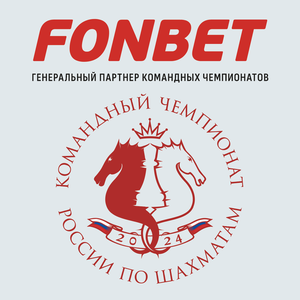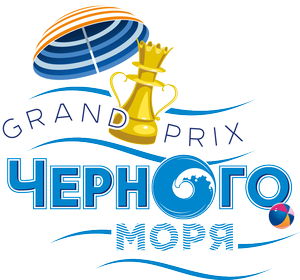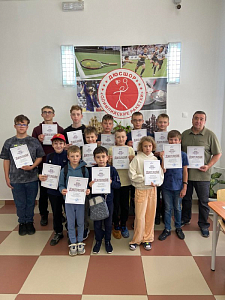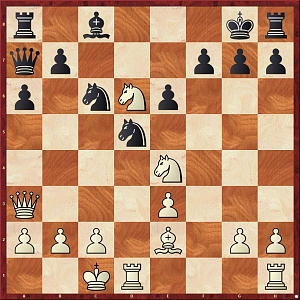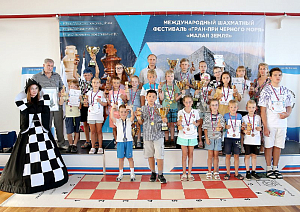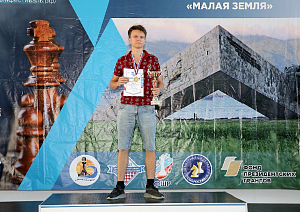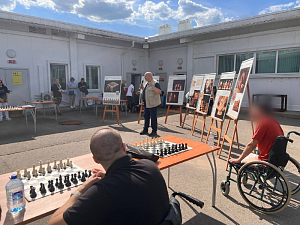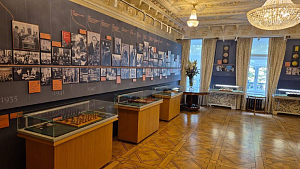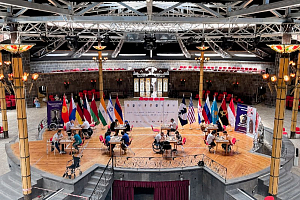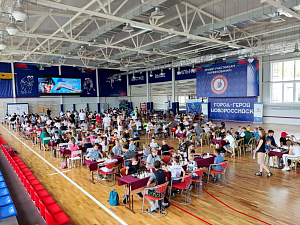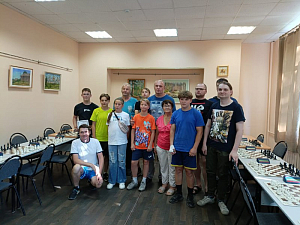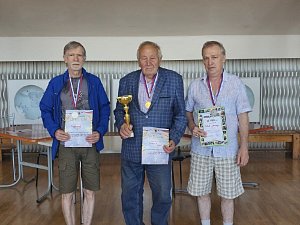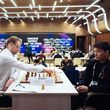Person of day - 25 JUNE 2024
VLADIMIR KRAMNIK
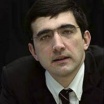
Vladimir Kramnik was born in Tuapse in a family of artists. He was taught to play chess by his father. In no time at all, he became regional champion, a candidate for master and his city’s champion among adults. When he was 11, his games fell into the hands of Botvinnik, who recognised the young man’s talent and invited him to a chess class of the Botvinnik-Kasparov school. Kramnik made rapid progress; he was the world U16 and U18 champion and in 1991, he became an international grandmaster.
A large role in Vladimir Kramnik’s development was played by a two-time Soviet champion, Vitaly Tseshkovsky, who moved from Omsk to Krasnodar and mentored the young man until 1993. In the early 1990s, Kramnik moved to Moscow and began an independent assault on the chess Olympus.
His first notable success came at the 1992 Olympiad in Manila, when the young grandmaster won 8,5 points out of 9 for his team, even though the decision to include him was taken in an emergency meeting of the Russian Chess Federation, when respected expect Yuri Razuvaev persuaded the team’s trainers and its leader Garry Kasparov to include young Vladimir. From then on, Kramnik became a consistent member of the Russian national team, winning Olympiads in 1992, 1994 and 1996. By 1993, he had become a candidate for the chess crown, but his first candidates’ matches were unsuccessful- he could not make it to the final round.
In 1995, Garry Kasparov invited Vladimir Kramnik to help him in the match for the world championship against Vishy Anand. This experience would be beneficial to Kramnik, who beat Kasparov in London in 2000 and became the world champion. Vladimir Kramnik held this title from 2000 to 2007: he beat Peter Leko in Brissago 7:7 and Veselin Topalov in 2006 in Elista by a score of 8,5:7,5. In 2007, Kramnik split 2nd place at the world championship in Mexico City. Vishy Anand was champion and Kramnik would subsequently play a revenge-match against him in 2008 in Bonn, which he lost 4,5:6,5.
Behind these numbers lies an extraordinary drama in battle: with Leko, Kramnik only came back in the last game while losing 6:7, while Topalov was defeated in a tie-break after a fierce contest on and off the chess board. The 2006 world championship in Elista was marked by the “toilet scandal”: Vladimir and Veselin started the match as friends and ended it as enemies, which they remain to this day. ButvictoryremainedwiththeRussian.
Throughout his spectacular career, Vladimir Kramnik won more than 50 tournaments. He was very successful in different fields, he defeated the world’s strongest grandmasters and he continues to delight his followers with new achievements. One of his more peculiar records is his domination of the super tournament in Dortmund, which Kramnik won 11 times. Kramnik has been one of the world’s best grandmasters for the last 25 years.
Like most outstanding grandmasters, Kramnik has a universal playing style, but most experts note him for his spectacular openings, fine-tuned positional play and unique professionalism. At the 2013 Candidates Tournament in London, Kramnik split 1st-2nd places with Magnus Carlsen, but lost to the Norwegian grandmaster by a strange additional criterion- the number of victories.
After a brief decline that was brought about by excessive energy demands at the candidates’ tournament, Vladimir Kramnik recovered his form in time for the 2013 World Cup in Tromso, which he won confidently. Towards the end of 2013, Kramnik won the world team championship with Russia.
Alas, the subsequent period in the world champion’s career was not so successful: he only split 3rd-5th places at the 2014 candidates’ tournament in Khanty-Mansiysk, his rating declined and he did not make it to the 2016 candidates’ tournament in Moscow. Kramnik’s path towards victories was re-discovered by the Siberia super-club at the Russian team championship. After winning gold medals there, Vladimir conquered the European scene with his fellow Siberians.
His stable, confident performances enabled the Russian grandmaster to surpass the 2800 mark. Furthermore, Kramnik set his personal record of 2812 Elo points, putting him just behind Magnus Carlsen in the rating list. In addition, the 14th world champion won bronze at the world blitz championship.
“I will continue trying to improve my game. Of course, I would like to challenge for the world championship, since I am a mature chess player who doesn’t have too much time left for this. It is sad to be missing this cycle, but what can I do? With my years, I have gotten used to accepting things as they are.
Meanwhile, everyone’s rating rises and falls, even Carlsen’s, although he is more consistent than others. But he had a significant drop fairly recently. There is high competition and a crowded tournament schedule. Anand, for example, was also inconsistent: half a year ago, he was the second in the world, now he has fallen out of the top 10. But perhaps he will return, because he is first-class” (V. Kramnik).
In the last few years, Vladimir Kramnik has not played that much, but he has been successful: he won a bronze medal at the 2016 Olympiad with the Russian team, he won the 2017 national team championship with Siberia-Sirius and he retained second place in FIDE’s rating-list after he split 2nd-3rd with Stavanger, where he defeated Carlsen.
Vladimir Kramnik has done a lot to promote chess in the Sirius School. The former world champion invited every leading young chess player in the country and drew up the working plan for trainers.
Vladimir Kramnik is married to Marie-Laure, a French journalist. The couple have a daughter named Daria and a son named Vadim.
At the very end of 2019, Vladimir Kramnik took part in the World blitz championship in Moscow and won the third place to the joy of his numerous fans. In May 2020, the Play For Russia charity tournament was held at the initiative of the 14th world champion. The donation pool amounted to 25,600,000 rubles and was shared among regional hospitals and health workers fighting the COVID-19 epidemic.
Also, Kramnik held several training sessions for the young Indian chess players.









